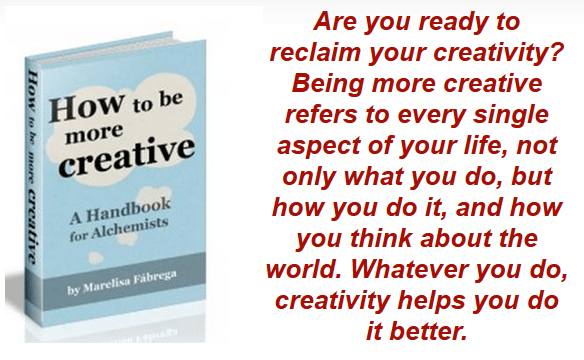
George Washington’s rules of civility are more than just etiquette.
When George Washington–the first president of the United States of America–was about 16 years old, he copied out by hand a list of 110 “Rules of Civility & Decent Behavior in Company and Conversation”. The rules are based on a set of rules composed by French Jesuits in the 16th century.
 Although at first glance the rules appear to be simply rules of etiquette, in the book “Rules of Civility: The 110 Precepts That Guided Our First President in War and Peace”, the author explains that “the rules seek to form the inner man (or boy) by shaping the outer”. That is, they’re a way of molding your character by shaping your behavior.
Although at first glance the rules appear to be simply rules of etiquette, in the book “Rules of Civility: The 110 Precepts That Guided Our First President in War and Peace”, the author explains that “the rules seek to form the inner man (or boy) by shaping the outer”. That is, they’re a way of molding your character by shaping your behavior.
There’s a quote attributed to Emily Post that says the following:
“Manners are a sensitive awareness of the feelings of others. If you have that awareness, you have good manners, no matter what fork you use.”
That’s what Washington’s rules of civility and decent behavior reflect. The rules are about focusing on other people, instead of just thinking of our own narrow self-interest. In addition, they’re about being willing to make small sacrifices for the sake of living in a community and getting along well with others.
Although there’s 110 rules, I’ve chosen the 32 that I consider to be most relevant to today’s day and age. You’ll find them below (keep in mind that some of the language is a bit antiquated).
1. Every action done in company ought to be with some sign of respect to those that are present.
2. Let your countenance be pleasant but in serious matters somewhat grave.
3. The gestures of the body must be suited to the discourse you are upon.
4. Reproach none for the infirmities of nature, nor delight to put them that have in mind of thereof.
5. Show not yourself glad at the misfortune of another though he were your enemy.
6. Undertake not to teach your equal in the art himself professes; it savors of arrogancy.
7. Let your ceremonies in courtesy be proper to the dignity of his place with whom you converse, for it is absurd to act the same with a clown and a prince.
8. When a man does all he can, though it succeed not well, blame not him that did it.
9. Being to advise or reprehend any one, consider whether it ought to be in public or in private, and presently or at some other time; in what terms to do it; and in reproving show no signs of cholor but do it with all sweetness and mildness.
10. Wherein you reprove another be unblameable yourself, for example is more prevalent than precepts.
11. Use no reproachful language against any one; neither curse nor revile.
12. Be not hasty to believe flying reports to the disparagement of any.
13. Play not the peacock, looking every where about you, to see if you be well decked, if your shoes fit well, if your stockings sit neatly and clothes handsomely.
14. Associate yourself with men of good quality if you esteem your own reputation; for ’tis better to be alone than in bad company.
15. Let your conversation be without malice or envy, for ’tis a sign of a tractable and commendable nature.
16. Utter not base and frivolous things among grave and learned men.
17. Speak not of doleful things in a time of mirth or at the table; speak not of melancholy things as death and wounds, and if others mention them, change if you can the discourse.
18. Tell not your dreams, but to your intimate friend.
19. Deride no man’s misfortune though there seem to be some cause.
20. Be friendly and courteous.
21. Give not advice without being asked, and when desired do it briefly.
22. In things indifferent be of the major side.
23. Reprehend not the imperfections of others, for that belongs to parents, masters and superiors.
24. Think before you speak, pronounce not imperfectly, nor bring out your words too hastily, but orderly and distinctly.
25. When another speaks, be attentive yourself and disturb not the audience. If any hesitate in his words, help him not nor prompt him without desired. Interrupt him not, nor answer him till his speech be ended.
26. Be not apt to relate news if you know not the truth thereof.
27. Be not curious to know the affairs of others.
28. Let your carriage be such as becomes a man grave, settled and attentive to that which is spoken. Contradict not at every turn what others say.
29. Speak not evil of the absent, for it is unjust.
30. Be not angry at table whatever happens and if you have reason to be so, show it not but on a cheerful countenance especially if there be strangers, for good humor makes one dish of meat a feast.
31. Let your recreations be manful not sinful.
32. Labor to keep alive in your breast that little spark of celestial fire called conscience.
Conclusion
There’s a TV show called “Sleepy Hollow” in which the main character, Ichabod Crane, comes from the time of George Washington. His manners are impeccable, and it’s a pleasure to watch how he behaves himself and relates to others.
The world would be a much better place if we all behaved in accordance with Washington’s rules of civility and decent behavior. In case you’re curious, you can read all 110 precepts here. Live your best life by being well-mannered.





Related Posts:
- How to Develop Your Character – Benjamin Franklin’s Thirteen Virtues
- How to Make Decisions Like Benjamin Franklin
- What a Special Agent Can Teach You About Achieving Your Goals
- What A 16th Century Priest Can Teach You About Self-Improvement
Did you enjoy this article? Subscribe to “Daring to Live Fully” by RSS or by email, and get free updates.




 Marelisa Fabrega is a lawyer and entrepreneur. She holds a Bachelor of Science in Business Administration from Georgetown University in Washington, D.C., as well as a Juris Doctor from the Georgetown University Law Center. You can learn more about her
Marelisa Fabrega is a lawyer and entrepreneur. She holds a Bachelor of Science in Business Administration from Georgetown University in Washington, D.C., as well as a Juris Doctor from the Georgetown University Law Center. You can learn more about her 





